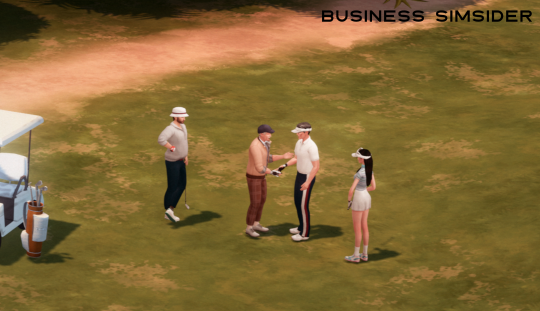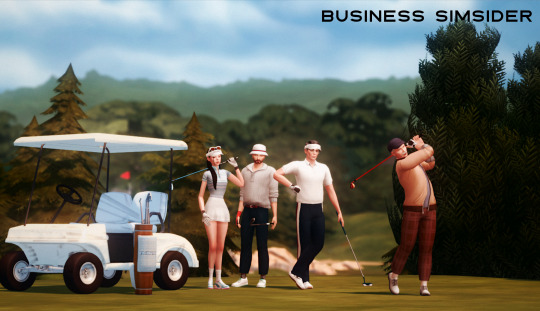#corporate disclosures
Explore tagged Tumblr posts
Text

They've been laughing at you since the very beginning,Wake Up Now Humans !...Still,it's time for you to Stand Up in Unity Consciousness with your Sacred Mother Earth !...Dark Evil Forces have been hiding behind Goverments' Corporations !...They're really making fools of you whilst executing all the False Flags !..
© Samissomar © Samissomar
http://samissomarspace.wordpress.com
#poetry#consciousness#spiritual#humanity#aliens#earth#universe#truth#peace#love#disclosure#balance#politics#governments#corporations#reality#awakening#evolution
18 notes
·
View notes
Text
I'm fine I'm just really really pissed off at this guy

fuck you and your local meme billboard arms
#fucking corporate cash buy-out bastard#he owns like half of the real estate listings around here#flip a coin and find this shithead with his arms spread on the front lawn#it's like that 'Darmok' Star Trek TNG episode#“Kris Lindahl; his arms wide”#buys houses for cash#replaces the carpets#hides all the disclosures#and charges $75k over market value#somehow everything still sells in less than a week#I'm going to ride a moose through his front window#meanwhile#I have to start from SCRATCH with my dad#who is just... impossible to deal with about real estate#he REFUSES to understand this market#I thought this house getting snatched out from under us might teach him a lesson but. uh. no. no it did not#he was just like “well we'll magically find a cheaper house with MORE features” and then we'll negotiate a price on THAT one#or the classic: “there are tons of houses available”#.............not in the year of our Demiurge Capitalist Hellscape 2024 there are not
5 notes
·
View notes
Text
Today I was asked to come up with a metaphor to describe what my work feels like - which is not a question I've ever been asked before - and this is the best I could come up with:
Work feels like I'm in a twisted game show. At the beginning of the year, I've been placed in a tiny room with a number of priceless antiques - some more fragile than others - and I've been tasked with displaying them in the very limited amount of display space available. I spend the first chunk of the year trying to do so artfully and strategically. Some pieces are easy and sturdy and have obvious places they should go where they'll be safe. Others are more fragile or get placed in more precarious positions because I'm working with what I've got.
Then, at some point when I'm done (or at the beginning of the fourth quarter; whatever comes first), someone presses a big red button and a hoarde of sugar-happy kindergarteners get released into this room and my job switches from making sure everything has a place, to trying to predict what's going to be knocked over in what order and trying to catch it before it hits the ground.
Someone please tell me they can relate to this and my job is not just uniquely chaotic.
Also, please put in the tags what your jobs feel like. I'm so curious now.
#(disclosure: I am not a Project Manager#but like#functionally I am similar to a Project Manager):#9 to 5#work life#project manager#corporate life#well... corporate-ish#just some personal rambling#work stuff
4 notes
·
View notes
Text
yeah this has been thoroughly dug into already. it's a stack of venture capital nonsense , funds and acquisitions but it's real. it's on their job listing from last year


dear god please kill whatever this shit is
#their own website is not a good or accurate disclosure of their investment or ownership btw#this goes for all corporations and ventures usually#also fuck you for calling this a “moral panic”#kiss my ass
40K notes
·
View notes
Text
trouble is when the AI accidentally kills somebody the family will be bribed into silence by an NDA and there’s gonna be no way to assess the risk.
0 notes
Text
Blowing the Whistle; The Drone Deluge - What's Really Going On?
The revelations from “Radar Guy” continue: “What gets me concerned, and why I had to make this post, is that something big is about to go down. I happen to know that there are additional ‘full lock out’ drills that are scheduled to take place between now and Christmas Eve. These operations involve the full turnover of all radio/radar and aircraft communications to the military for several hours at a time. In conjunction with that, there are also scheduled satellite launches ‘off the books’ which have been occurring since October. They are setting up some kind of big ‘show’ for the public very soon. CNN was even at our facility shooting ‘pre-roll’ footage for a future story. I don’t know exactly what is going on, but all I know is this: GET READY!”
Dr. Steven Greer told me that he had no idea where the drones are coming from, “but they are definitely not extraterrestrial. They are a diversion, part of a psychological warfare operation trying to capture the momentum of disclosure and turn it into an alien invasion scenario.”
#aliens and ufos#politics#constitution#congress#supreme court#corporate greed#alien species#right wing terrorism#military industrial complex#disclosure
0 notes
Text
DOJ Announces Changes to Guidance on Corporate Compliance Programs, Updates on Whistleblower Program
In an address this week to the Society of Corporate Compliance and Ethics, Principal Deputy Assistant Attorney General Nicole M. Argentieri of the Department of Justice’s (“DOJ”) Criminal Division, highlighted several updates relevant to corporate compliance programs, including the DOJ’s new whistleblower programs and incentives. Sufficient Compliance: Updated Areas to Consider The Evaluation of…
#Corporate Compliance#Corporate Enforcement and Voluntary Self Disclosure Policy#Department of Justice#DOJ#ECCP#Evaluation of Corporate Compliance Programs#Society of Corporate Compliance and Ethics#U.S. Sentencing#Whistleblower#Whistleblower Awards Program
0 notes
Text
the city of Ottawa spent decades developing a company town out Downtown for an industry that has adapted and evolved to the new world order, leaving the city struggling to "revitalize" the neighbourhood to "help local* businesses"
are they increasing transit to make getting downtown easier? are they encouraging businesses to open more than 11am-3pm M-F? are they asking the tens of thousands of people who live in the neighbourhood what services/businesses they want/need and then incentivizing those businesses to open in the neighbourhood? are they encouraging businesses that offer activities beyond "eat overpriced mediocre food and get drunk on overpriced mediocre booze"? are they offering parking or transit passes to public servants?
nope.
they're cutting transit, pandering to the businesses who could not be fucked to adapt, and forcing the same number of workers into a fraction of the office space despite most of the data showing that WFH is just as or more productive than office work, and putting extra expenses on workers whose wages have not kept up with inflation who now have to pay for transportation and before/after school childcare on top of being expected to spend $20-$30 a day on burnt coffee, stale sandwiches, and soggy salads at businesses whose owners want you to torpedo your budget, work/life balance, and quality of life just to line their pockets
#(*local here meaning “multi-billion dollar foreign corporations with storefronts near gov't offices”#more often than it means actually locally owned independent businesses)#honestly what downtown ottawa needs is activities#escape rooms. indoor mini putt. bowling alley. skee ball. craft/hobby shops.#things that residents of the neighbourhood have to go out to the suburbs for#PUT THe LIBRARY FUCKING BACK#MAKe TRANSIT ReLIABLe AND FUNCTIONAL#(full disclosure I don't live in downtown ottawa anymore & i'm not a public servant so i technically have no skin in this game#but i trauma-bonded with that city. it's my home and I want to move back there. i am invested in it not sucking when I do get back)
1 note
·
View note
Text
Stock Exchange rates Fidelity Bank highest on corporate governance
Fidelity Bank Plc complies with the highest corporate governance standards as the leading commercial bank adheres promptly to all full disclosure requirements and global best practices. Fidelity Bank is awarded CG+, the highest rank under the Corporate Governance Rating System (CGRS), which screens quoted companies against prescribed best practices and standards. A review of the latest compliance…
#Board Oversight#CG+#Corporate Governance#Ethical Business Practices#Fidelity Bank#Financial Disclosure#Investment Safety#NGX Regulation#Shareholder Confidence#Stock Market Compliance#Touchaheart.com.ng
0 notes
Text
One of Eve's plot relevant quirks is that she never speaks to, or in front of cogs. She initiates fights by whistling or throwing things at them on the street.
#toontown corporate clash#Eve doesn't communicate shit with her teams she picks a gag and lets everyone else figure out a strategy#The one exception to this rule is Boar. due to extenuating circumstances#Full disclosure council plates is heavily toon focused#Bc I prefer writing toons to cogs
0 notes
Text
دور نظام حوكمة الشركات في زيادة الإفصاح الاختياري - دراسة تطبيقية على الشركات الصناعية العاملة في قطاع غزة
دور نظام حوكمة الشركات في زيادة الإفصاح الاختياري – دراسة تطبيقية على الشركات الصناعية العاملة في قطاع غزة دور نظام حوكمة الشركات في زيادة الإفصاح الاختياري – دراسة تطبيقية على الشركات الصناعية العاملة في قطاع غزة الكاتب : Baraka Kamel الملخص: هدفت هذه الدراسةُ إلى معرفة دور نظام حوكمة الشركات في زيادة مستوى الإفصاح الاختياري ، ولتحقيق أهداف الدراسة تم تصم��م استبانة تتناسب مع هذا الغرض وزعت على…

View On WordPress
#decision-making#justice#transparency#voluntary disclosure#الافصاح الاختياري#الشفافية#العدالة#اتخاذ القرار ; corporate governance#حوكمة الشركات
0 notes
Text
دور نظام حوكمة الشركات في زيادة الإفصاح الاختياري - دراسة تطبيقية على الشركات الصناعية العاملة في قطاع غزة
دور نظام حوكمة الشركات في زيادة الإفصاح الاختياري – دراسة تطبيقية على الشركات الصناعية العاملة في قطاع غزة دور نظام حوكمة الشركات في زيادة الإفصاح الاختياري – دراسة تطبيقية على الشركات الصناعية العاملة في قطاع غزة الكاتب : Baraka Kamel الملخص: هدفت هذه الدراسةُ إلى معرفة دور نظام حوكمة الشركات في زيادة مستوى الإفصاح الاختياري ، ولتحقيق أهداف الدراسة تم تصميم استبانة تتناسب مع هذا الغرض وزعت على…

View On WordPress
#decision-making#justice#transparency#voluntary disclosure#الافصاح الاختياري#الشفافية#العدالة#اتخاذ القرار ; corporate governance#حوكمة الشركات
0 notes
Text

Taylor Swift’s Eras Tour Grand Total: A Record $2 Billion
By Ben Sisario
For the last 21 months, Taylor Swift’s Eras Tour has been the biggest thing in music — a phenomenon that has engulfed pop culture, dominated news coverage and boosted local economies around the world.
Now we know exactly how big.
Through its 149th and final show, which took place in Vancouver, British Columbia, on Sunday, Swift’s tour sold a total of $2,077,618,725 in tickets. That’s two billion and change — double the gross ticket sales of any other concert tour in history and an extraordinary new benchmark for a white-hot international concert business.
Those figures were confirmed to The New York Times for the first time by Taylor Swift Touring, the singer’s production company. While the financial details of the Eras Tour have been a subject of constant industry speculation since tickets were first offered more than two years ago — through a presale so in-demand it crashed Ticketmaster’s system — Swift has never authorized disclosure of the tour’s numbers until now.
The official results are not far from the estimates that trade journalists and industry analysts have been crunching for months. But they solidify the enormous scale of Swift’s accomplishment. Just a few months ago, Billboard magazine reported that Coldplay had set an industry record with $1 billion in ticket sales for its 156-date Music of the Spheres World Tour — a figure that is just half of Swift’s total for a similar stretch of shows in stadiums and arenas.
Every date on the Eras Tour was sold out, and spare tickets were scalped at eye-popping prices — or traded within the protective Swiftie fan community, often at face value.
According to Swift’s touring company, a total of 10,168,008 people attended the concerts, which means that, on average, each seat went for about $204. That is well above the industry average of $131 for the top 100 tours around the world in 2023, according to Pollstar, a trade publication.
The biggest single night’s attendance was in Melbourne, Australia, on Feb. 16, 2024, with 96,006. And Swift’s eight nights at Wembley Stadium in London, which she played more than any other venue, drew 753,112 people — about as many as live in Seattle.
As gigantic as they are, the figures revealed by Swift’s company are only part of the overall business that has surrounded the tour. They exclude her extraordinary merchandise sales, for example, a product line so in demand that Swift opened stadium sales booths a day early in some markets to sell T-shirts, hoodies and Christmas ornaments to fans, ticketed or not.
And they do not count the secondary market of online ticket resellers. According to StubHub, the Eras Tour was the biggest-selling tour in the platform’s two-decade history, and last year it outsold Beyoncé’s shows by a factor of five. Another ticketing company, Victory Live, said the average price for resold tickets to the Eras Tour’s three Vancouver dates was $2,952. (Swift earned nothing from resold tickets.)
Beyond its numbers, the Eras Tour has been a mega-event that elevated the already-super-famous Swift to a new level, making her an epochal symbol of cultural saturation on the level of the Beatles in the 1960s or Michael Jackson in his ’80s prime. Swift’s every onstage utterance, outfit swap or offstage sighting was thoroughly documented, on social media and in the mainstream press, with news outlets big and small rushing to capture Swifties’ clicks. Online, fans tracked every tweak to the three-hour-plus set lists.
As the story of Swift’s tour took shape, it seemed to contain its own eras within it. First, in November 2022, came the ticket fiasco, when Ticketmaster was overwhelmed by what it said were 3.5 billion online requests for tickets, many from scalpers’ bots. The furor over those problems led to a Senate Judiciary hearing in January 2023, at which lawmakers from both parties openly called Ticketmaster’s corporate parent, Live Nation, a monopoly. (This year, the Justice Department filed an antitrust suit against Live Nation, calling for a breakup of the company.)
Then came the tour and the folkways that developed around it, like fans trading hand-assembled friendship bracelets. After the tour’s stop in Kansas City, Mo., a public flirtation between Swift and Travis Kelce, the star tight end of the Kansas City Chiefs, developed into a full-on romance, with the pop star and the football hunk sharing a field-level smooch after the Chiefs defeated the San Francisco 49ers at Super Bowl LVIII in February. The photographers definitely did not miss it.
In October 2023, she released “Taylor Swift: The Eras Tour,” a nearly three-hour concert film, released through a direct distribution deal with AMC Entertainment, the world’s largest theater operator. It sold about $93 million in tickets during its opening weekend, and ended up with $261 million in worldwide grosses, according to Box Office Mojo. The next step was a streaming deal with Disney+. A 256-page hardcover tour book, released last month through Target stores, sold 814,000 print copies in its first two days on sale.
As the tour moved to Europe in 2024, it narrowly avoided what could have been a major catastrophe when a terrorist bomb plot was uncovered before three planned shows in Vienna. Those events were canceled and never rescheduled.
Although Swift has largely avoided the news media during the tour, over time she has pulled back the curtain a bit to reveal some of how it came together. To prepare herself for the physical demands of the show, she trained for six months, with a cardio regimen that included singing the entire set list while running on a treadmill, she told Time magazine.
“I knew this tour was harder than anything I’d ever done before by a long shot,” the magazine quoted her as saying. “I finally, for the very first time, physically prepared correctly.”
The music video for “I Can Do It With a Broken Heart,” from her latest album, “The Tortured Poets Department” — her third release over the course of the tour, including two rerecorded versions of older albums — has behind-the-scenes clips confirming some of the stagecraft mechanics that fans have carefully cataloged on social media, like how she “dives” each night through a “hole” in the stage (onto a soft cushion held by crew members) and how she is ferried backstage in a dummy janitor’s cart.
The tour concludes just as Swift celebrates yet another win: “Tortured Poets” has returned to No. 1 on the Billboard 200 chart for a 16th week, with help from vinyl and CD sales of the 35-track “Anthology” edition of the album, which Swift released on Black Friday, also through Target. “Tortured Poets” is by far the biggest-selling album of the year so far.
Swift is up for six awards at the Grammys in February, including album of the year for “Tortured Poets” and both record and song of the year for one of its singles, “Fortnight.”
At a recent tour stop in Toronto, as the tour neared its end, Swift teared up as she delivered valedictory remarks to fans.
“My band, my crew, all my fellow performers,” she said, “we have put so much of our lives into this, and you put so much of your lives into being with us tonight and to giving us that moment that we will never forget.”
330 notes
·
View notes
Text


Lesmana Enterprise and Willow Creek: Takeover Talks or Just a Round of Golf?
By Business Simsider SimNation
San Myshuno—The markets are abuzz with speculation after Kieran Lesmana, CEO of Lesmana Enterprise, was spotted on the greens of Willow Creek Country Club alongside wife Seo Yeon Kim, Mayor Harlan Scott and West Simnation State Senator Albert Fryer. While a golf game might seem like a harmless pastime for the billionaire mogul, industry insiders and market analysts believe this meeting may signal something far more significant: a potential Lesmana-backed corporate expansion into Willow Creek.
Lesmana Enterprise, one of the most powerful conglomerates in SimNation, has long been known for its strategic urban developments and high-profile acquisitions. While no official statements have been made, Lesmana Enterprise's stock (LSMN) saw a sharp uptick (+0,65%) following the weekend outing, as whispers of a possible real estate play in Willow Creek spread through financial circles.


A Deal Behind Closed Doors?
While there has been no public disclosure of a purchase or formal agreement, sources close to the matter suggest that a deal may have already been struck behind the scenes. Analysts point to Lesmana’s pattern of discreet negotiations before major corporate expansions. The lack of any official denial from city officials or Lesmana representatives has only fueled further speculation.
“It wouldn’t be the first time we’ve seen a major player move in before the public catches wind of it,” said investment strategist Helen Feng. “If Lesmana Enterprise is involved, you can expect high-value real estate shifts, rezoning efforts, and possibly a large-scale redevelopment project.”
Willow Creek Residents in the Dark
On the ground in Willow Creek, however, locals seem unaware of any such plans. When asked about the rumored deal, longtime residents expressed confusion. “I haven’t heard anything about that,” said Eliza Pancakes, who has lived in Willow Creek for over a decade. “But if Lesmana’s getting involved, I just hope they don’t push people out.”
Concerns over corporate takeovers and gentrification are not new. Lesmana Enterprise’s past projects have been praised for their modern infrastructure but have also drawn criticism for displacing lower-income communities, such as the landed house projects in San Myshuno's spice market borough. If the speculation turns out to be true, questions will arise over what this could mean for Willow Creek’s future.

Adding Fuel to the Fire
As if the speculation wasn’t enough, Seo Yeon Kim, ex member of the famed S-pop girl group Lumina, now wife of Kieran Lesmana, unintentionally added more fuel to the online debate with a recent Simstagram story. Posting a casual selfie followed by videos of her day on the greens, she subtly reminded followers that Senator Fryer and Mayor Scott has been a longtime family friend of the Lesmanas.
This seemingly innocuous post has ignited heated discussions online. Some argue that her presence simply reinforces the existing ties between the Lesmanas and political figures, dismissing the golf outing as a routine social event. Others, however, see it as an undeniable hint that she—whether directly or indirectly—plays a role in shaping the rumored deal.
“If it was just a friendly game, why post about it now?” one user speculated on SimNation Finance Forum. “She knows what she’s doing. This isn’t just golf—it’s strategy.”
Stay tuned as Business Simsider SimNation continues to follow this developing story.
#simblr#lesmana-enterprise-ltd#sims 4#sims 4 aesthetic#sims 4 screenshots#ts4 simblr#sims 4 no cc#the sims 4 story#sims 4 gameplay#sims 4 legacy#show us your sims#willow creek#ourstory
187 notes
·
View notes
Text
DOJ Implements New Whistleblower Reward Program
Companies who submit healthcare claims to private payors, provide financial services to customers, interact with domestic or foreign public officials, or otherwise operate in highly regulated industries should take note that the Department of Justice (DOJ) has taken another significant step in its ongoing effort to encourage new whistleblowers with information about potential corporate criminal…
#Corporate Enforcement and Voluntary Self Disclosure Policy#Corporate Whistleblower Awards Program#criminal charges#Department of Justice#DOJ#False Claims Act#FCA#healthcare claims#Original Information#pilot program#Sarbanes-Oxley Act#SOX
0 notes
Text
The funniest possible outcome of all these Google antitrust disclosures re: deceptively re-writing people's search queries in order to maximise Google's ad revenue would be if the corporations that paid for those ads decide that Google has been defrauding them the whole time. The ultimate "bite each other's dicks off" scenario.
#computers#technology#internet#search engines#google#antitrust#current events#violence mention#penis metion
2K notes
·
View notes